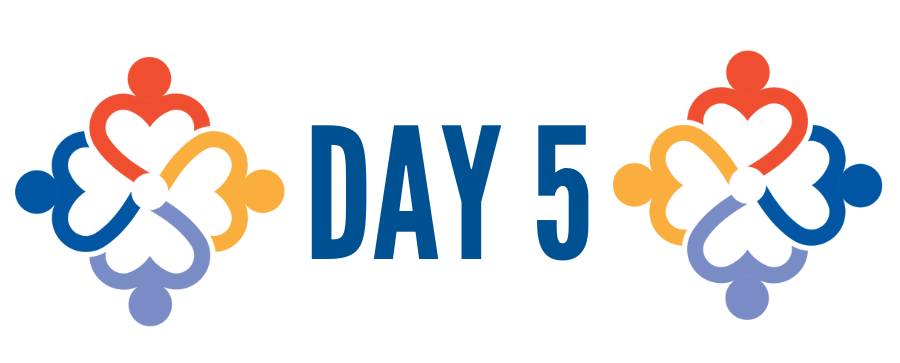
Day 5: Understanding and Reflecting on Bias
The topic of bias can sometimes be a difficult one. Most of us see ourselves, rightly so, as kind, caring individuals who try to do right by others. As we dive into this topic, I hope one thing is clear: all of us have bias. It often shows up without us having to think about it or make a conscious choice. In the context of equity, bias is a preference toward or against a person or group based on social identities like race, ethnicity, age, sexual orientation, gender, nationality, dis/ability status, and more. Some biases are conscious – we make intentional decisions to favor something or someone over others. More often, our biases are unconscious or reflexive. Imagine if someone threw a ball at you. How might you react? You might duck or put your hands up to stop the ball from hitting you without even thinking about it. This is a reflex.
Biases aren’t always bad. If we see a growling dog lunging at us while walking down the street, our bias might be to assume that this dog could be dangerous. Moving away from the dog is probably not a bad reflex to have.
However, unconscious biases toward groups of people based on the stories we’ve been told or limited experiences we’ve had can cause us to make conclusions and decisions that are unfair or harmful.
Being aware of our biases is important to understanding how inequity shows up in our communities. Our biases are often built on stories we heard as children, news we watch, social media we interact with, and institutions we engage with like our schools, faith communities, and social organizations. These stories often fill in the gaps when we have limited information or experience with that group. As a result, we may have deeply held attitudes that some groups of people are less capable, less deserving, or warrant mistreatment. This might show up as having less empathy or patience for others. Or, when directed at ourselves as internalized bias, this can show up as feeling inferior or unlikeable.
Biases can turn into stereotypes – a common belief about members of a group that is an oversimplified opinion or attitude that disregards individual differences, experiences, and truths. These are shortcuts our brains take to make sense of a complicated world with lots of information. So, what can we do? We can notice, be intentional, and turn to curiosity.
TODAY’S CHALLENGE
Read:
Cognitive Biases: What They Are and How They Affect You by Effectiviology [18 min read]
This article outlines many different considerations related to cognitive bias. Take a peek at the table of contents and check out a few interesting topics. Cognitive biases affect every area of our life, from how we form our memories, to how we shape our beliefs, and to how we form relationships with other people. Learn more about cognitive biases, understand why we experience them, see what types of them exist, and find out what you can do in order to mitigate them successfully.
How the Best Bosses Interrupt Bias on Their Teams by Williams and Mihaylo (Nov-Dec 2019) [12 min read]
What can people leaders do in the workplace to interrupt bias? Authors Williams and Mihaylo share concrete examples of ways to interrupt bias in recruitment and hiring, supervision and delegation, and talent development.
Watch:
The Ladder of Inference by Flow Coaching Academy (Sept 7, 2021) [2 min watch]
The ladder of inference is a model that describes the thinking process we go through, usually without realizing it, to get from a fact to a decision or action. It can help us understand the shortcuts we make based on limited information and how we can notice when we are drawing unfair conclusions and actions we can take to lead to better results.
Engage:
Explore a Hidden Bias Test developed by psychologists at Harvard, the University of Virginia and the University of Washington. Consider taking a test to explore your own hidden bias on religion, disability, sexuality, race, age, or weight. [15 min engagement]
Reflect:
- Have you ever been unfairly judged? How did it make you feel?
- Think about a time when you made a conclusion about someone without having the full story. What assumptions did you make? Where did this assumption come from? How might you interrupt this next time and turn to curiosity?
- What can you do to be more aware of your biases?
